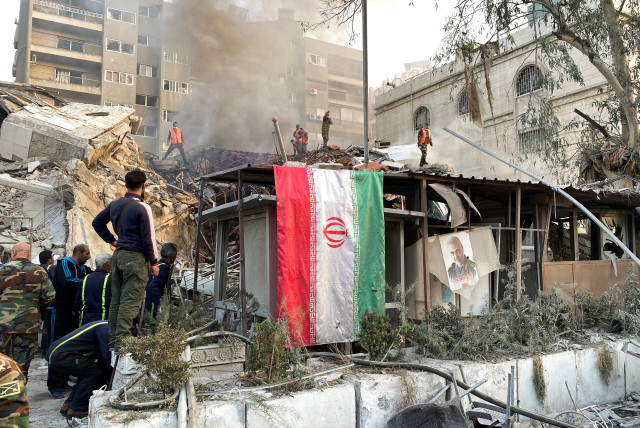IDF destroys Iran’s 'Deep Layer' facility in Syria in boldest operation yet - Axios

The IDF's General Staff Reconnaissance Unit destroyed a Syrian underground missile factory built by Iran, a significant blow to their covert operations.
The IDF's General Staff Reconnaissance Unit destroyed on Sunday a Syrian underground factory for precision missiles built by Iran, according to a Thursday Axios report.
According to the report, this was the boldest operation the IDF has carried out in recent years against Iranian targets in Syria. The destruction of the factory was reportedly a significant blow to Iran and Hezbollah's covert effort to produce medium-range precision missiles in Syria.
The Israeli government has thus far maintained silence on the matter and is not taking responsibility to avoid provoking Syria, Iran, or Hezbollah into retaliation. The IDF spokesperson, the Defense Ministry, and the Prime Minister's Office have all declined to comment.
The operation took place on Sunday night, with official Syrian media and the Syrian opposition reporting heavy Israel Air Force airstrikes in several areas of western Syria, including near the city of Masyaf, close to the Lebanese border.
On Wednesday, a Syrian opposition TV channel and Greek Middle East expert Eva J. Kalluriotis reported that the airstrikes were merely a cover for an Israeli ground operation in Masyaf. Three sources familiar with the operation confirmed to Axios that the IDF General Staff Reconnaissance Unit conducted a ground raid and destroyed a precision missiles manufacturing facility.
Destroying 'Deep Layer'
Two sources stated that Israel had informed the Biden administration in advance about the sensitive operation, and the US did not object. The Israeli special forces unit surprised the Syrian guards at the facility and killed several of them during the raid.
The Israeli forces used explosives they brought with them to blow up the underground facility from within, including advanced machinery, according to two sources who spoke to Axios. The airstrikes carried out on Sunday night were intended to prevent the Syrian army from sending enforcement troops back to the area.
According to the Axios report, the Iranians began constructing the underground facility in coordination with Hezbollah and Syria in 2018 after a series of Israeli airstrikes destroyed most of Iran's missile production infrastructure in Syria.
The Iranians decided to build a deep underground factory within a mountain in Masyaf to be impervious to Israeli airstrikes.
The Iranian plan was to produce precision missiles in a protected facility near the Lebanese border, allowing for quicker delivery to Hezbollah in Lebanon. According to the report, Israeli intelligence discovered and monitored the construction process for over five years, code-naming the Iranian facility "Deep Layer."
According to Axios' report, an airstrike alone would not be sufficient to destroy the facility, so the IDF opted to coordinate such an alleged attack with a ground operation. The IDF considered carrying out the operation at least twice in recent years, but it was not approved due to the high risks involved.
Jerusalem Post Store
`; document.getElementById("linkPremium").innerHTML = cont; var divWithLink = document.getElementById("premium-link"); if (divWithLink !== null && divWithLink !== 'undefined') { divWithLink.style.border = "solid 1px #cb0f3e"; divWithLink.style.textAlign = "center"; divWithLink.style.marginBottom = "15px"; divWithLink.style.marginTop = "15px"; divWithLink.style.width = "100%"; divWithLink.style.backgroundColor = "#122952"; divWithLink.style.color = "#ffffff"; divWithLink.style.lineHeight = "1.5"; } } (function (v, i) { });

